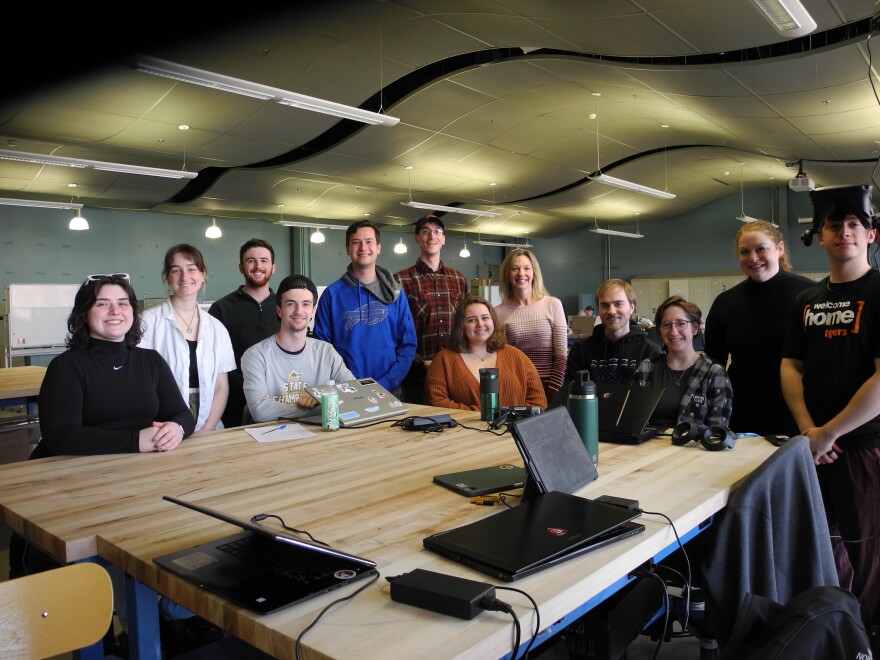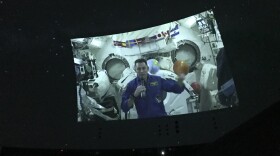Students at the Rochester Insitute of Technology have designed a high-tech video game to help NASA astronauts transition back to the gravity of life on Earth after long stays in space.
The Portable Lightweight Accelerometer for Nominal Equilibrium Training (PLANETS) device combines wearable sensors, a balance board and a virtual reality headset.
It’s an adaptation of a larger balancing rig the team designed a year before, said mechanical engineering professor Kathleen Lamkin-Kennard, who received the original NASA grant for the overall project in 2021.
“NASA expressed interest in a portable design, different from the larger balance rig we originally built last year. The team ran with it, and they did a great job,” Lamkin-Kennard said in a statement. “NASA set out requirements for the team, and they’ve matched them every step of the way.”
The goal of the PLANETS device is to ease the transition from zero gravity in space to a gravitational pull of about 32 feet per second squared on Earth.
Without that familiar weight of gravity, the brain’s ability to recognize balance, location in space, and movement is compromised. The PLANETS device would build back those skills.
RIT is one of six colleges selected to present projects to NASA as part of the Moon to Mars exploration program which aims to expand human exploration of the moon by the end of the decade.
It’s a stepping stone for NASA to develop future missions to send astronauts to Mars.
Students will present the portable sensory device to health specialists and other experts who train astronauts at the Astronaut Strength Conditioning Rehab Laboratory in Houston, Texas, starting Monday.



